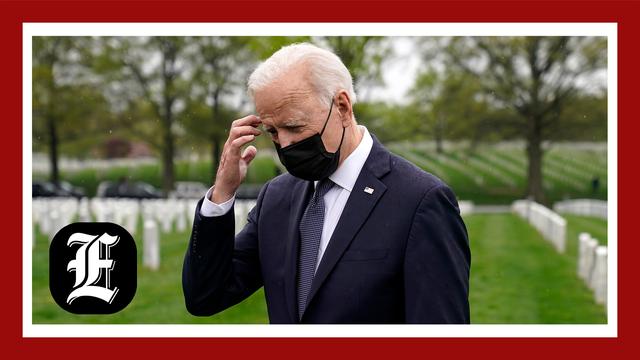
John O’Leary: 1% Chance of Surviving
When life knocks us down or tragedy strikes us or our loved ones, it’s easy to think life is unfair and wonder, “Why me?” But…
Thought Leader: John O’Leary

EXCLUSIVE — Former Secretary of Defense Mark Esper rebuked the Biden administration’s after-action report on the U.S. military’s withdrawal from Afghanistan.
President Joe Biden’s team released a 12-page unclassified summary last week of the after-action report about the withdrawal, and it pinned much of the blame for how the withdrawal occurred on the Trump administration. Specifically, the summary cited then-President Donald Trump’s decision to reduce the U.S. presence in Afghanistan and to agree to a withdrawal in a February 2020 deal with the Taliban as significant factors that forced Biden’s hand.
While the Trump administration agreed to leave in the deal with the Taliban, which came during Esper’s time as secretary of defense, the Biden administration opted to move forward with that plan, as the president campaigned on and advocated ending the forever wars.
“Then to point fingers at the military leadership and point fingers at the intelligence community. It seems like everybody got blame out of this except for the White House,” Esper added. “So I thought it was a poor showing, and we all recognize it was an abysmal evacuation from Afghanistan that hurt us, internationally, reputationally, really, and we need a better after-action review, a better list of recommendations about what we saw, and I hope Congress will get into the matter and peel back that onion.”
Esper’s call for Congress to investigate the war echoes that of former U.S. Central Command Commander Gen. Frank McKenzie, who told the Washington Examiner last month that he supports such oversight.
With the U.S. military set to depart at the end of August 2021 and the Taliban rapidly gaining territory throughout the country at the beginning of the month, the U.S. military began what became the largest airborne evacuation of noncombatants in history. They evacuated roughly 120,000 Afghans in those final two weeks of August, with flights taking off hourly, though thousands of other U.S. allies in Afghanistan were left behind. The environment at and all around the Kabul airport, where the evacuations were taking place, was swarmed daily by thousands of Afghans frantically hoping to leave the country.
John O’Leary: 1% Chance of Surviving
When life knocks us down or tragedy strikes us or our loved ones, it’s easy to think life is unfair and wonder, “Why me?” But…
Thought Leader: John O’Leary
David Frum: America on the Brink of War With Venezuela
On this episode of The David Frum Show, The Atlantic’s David Frum opens with a warning about the coming Supreme Court battle over President Donald…
Thought Leader: David Frum
Anders Fogh Rasmussen Calls for Stronger Ukraine Support
In an interview with Euronews, former NATO Secretary General Anders Fogh Rasmussen urged Germany to deliver its Taurus missiles to Kyiv, also calling on allies…
Thought Leader: Anders Fogh Rasmussen

